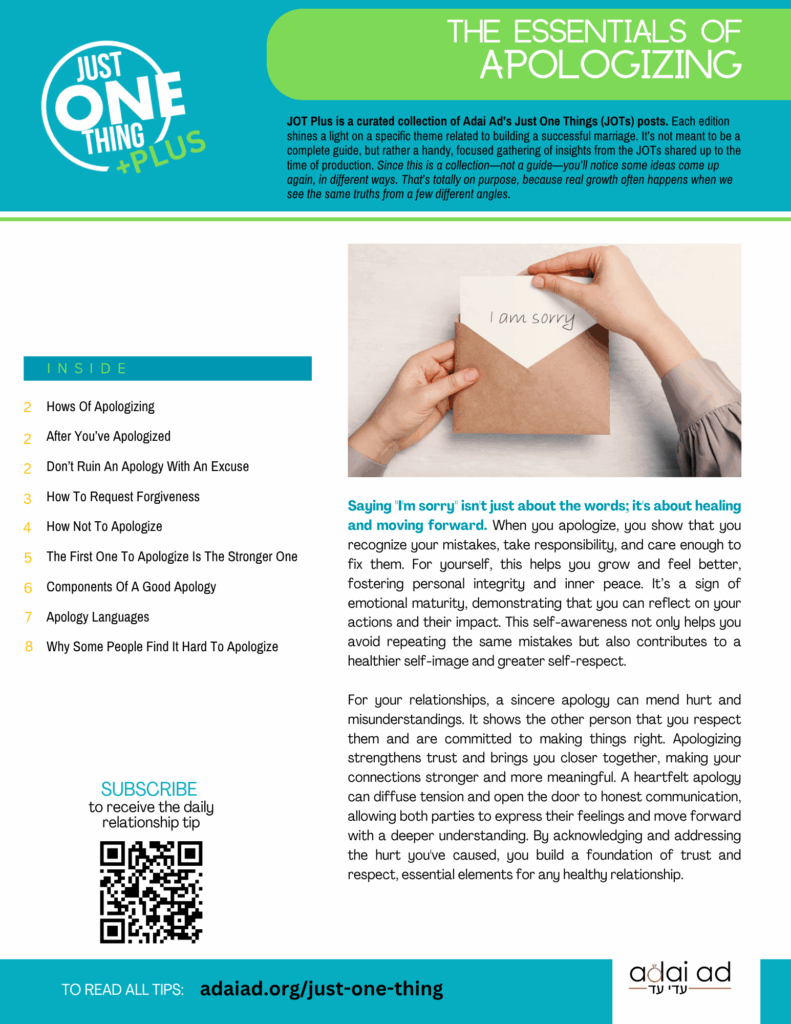Saying “I’m sorry” isn’t just about the words; it’s about healing and moving forward. When you apologize, you show that you recognize your mistakes, take responsibility, and care enough to fix them. For yourself, this helps you grow and feel better, fostering personal integrity and inner peace. It’s a sign of emotional maturity, demonstrating that you can reflect on your actions and their impact. This self-awareness not only helps you avoid repeating the same mistakes but also contributes to a healthier self-image and greater self-respect.
For your relationships, a sincere apology can mend hurt and misunderstandings. It shows the other person that you respect them and are committed to making things right. Apologizing strengthens trust and brings you closer together, making your connections stronger and more meaningful. A heartfelt apology can diffuse tension and open the door to honest communication, allowing both parties to express their feelings and move forward with a deeper understanding. By acknowledging and addressing the hurt you’ve caused, you build a foundation of trust and respect, essential elements for any healthy relationship.
Download the essentials of apologizing, including words to use and not to use, the languages of apology, what to do after an apology and other important points about apologizing.

